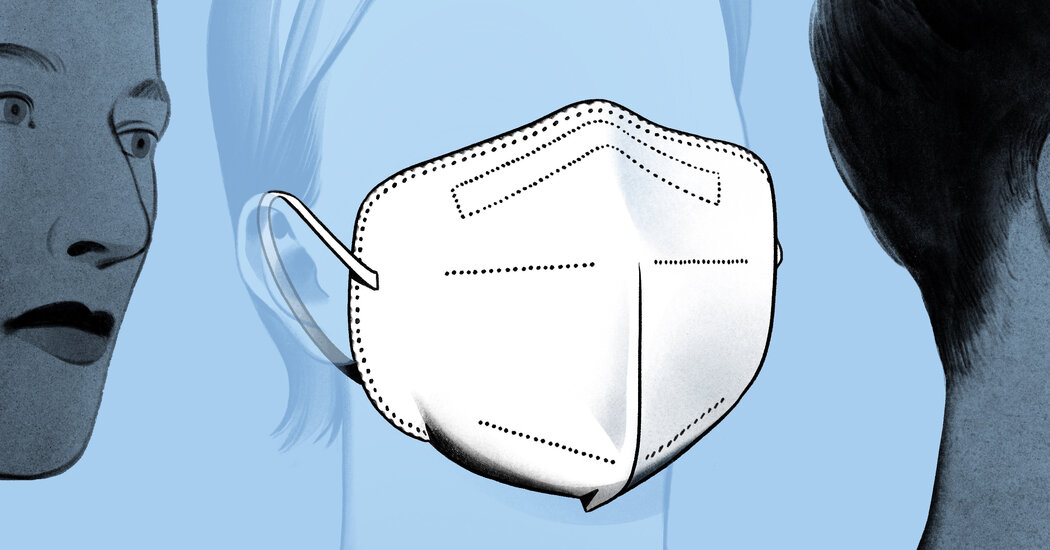Send any friend a story
As a subscriber, you have 10 gift articles to give each month. Anyone can read what you share.
Mr. Heid is a health and science journalist who has covered the Covid-19 pandemic, among other topics.
Should you get another Covid booster shot?
It seems like a straightforward question, but experts continue to butt heads over its answer.
The Food and Drug Administration recently authorized a second booster for everyone age 50 or older and for those with compromised immune systems.
Early research from Israel — a country that has tended to run a few months ahead of the United States in terms of both infections and the rollout of countermeasures — indicates that a second booster is safe and may provide some additional protection against severe illness.
Dr. Eric Topol, a professor of molecular medicine at Scripps Research in San Diego, said the F.D.A. made the right call. “No one wants to get a booster shot, and I wish we didn’t need them,” he said. But in his view, the data from Israel is compelling, and older adults or those with risk factors for Covid-19 should get the second booster.
When it comes to the first booster, which federal authorities authorized last November for all adults, he said the shot had “a vital effect” and should have been pushed out sooner.
But others disagree. “I’ve always been skeptical of the first booster, and I’m even less sure about the second booster,” said Dr. Phil Krause, a former deputy director of the F.D.A.’s Office of Vaccines Research and Review.
Dr. Krause left the F.D.A. last fall after the White House endorsed the initial booster shot before his agency had reviewed the data. Like Dr. Topol, he said that boosters make sense for the elderly and people who are at high risk for severe Covid-19.
But for everyone else, he said, the data shows that the initial two-shot mRNA vaccines provide strong and durable protection against severe illness, and the need for extra shots is, at this point, not warranted.
How can two esteemed scientists look at the same evidence and come to such different conclusions? Public health officials today are saddled with the unenviable task of providing clear, simple directives in response to a complex and constantly evolving pandemic.
No matter where they draw lines, the terrain under their feet is likely to shift. The continuing booster debate is perhaps the clearest example of these challenges.
The lack of expert consensus may seem perplexing — or even discouraging — to people who want forthright answers. But tidy solutions are the province of salespeople, not scientists. And people on both sides of the booster debate say that there are several considerations, all valid, that are nonetheless at odds with one another.
One big point of dispute concerns the purpose of boosters. “Are we trying to keep people out of the hospital or prevent mild illness or decrease populationwide transmission?” said Dr. Luciana Borio, a former acting chief scientist at the F.D.A. “If you don’t have a clear, agreed-upon goal, I think it’s easy for there to be disagreement.”
When it comes to the Omicron variant, boosters seem to provide transient protection from infection or spread. In my conversations with physicians and vaccine researchers, none brought up infection prevention as a strong justification for the second booster. Instead, most pointed to this or that data set and argued that reductions in severe illness (or a lack thereof) supported their views.
And about that data: Everyone wishes it were stronger. While some regard the research out of Israel as sufficient to back a second booster, Dr. Borio sees methodological shortcomings that limit its usefulness in shaping public policy decisions.
“Understandably, these sorts of population-wide observational studies aren’t randomized, they’re not taking place in a controlled environment, and there are many confounders,” she said.
For some, timing considerations also loom large. Right now, coronavirus infection rates in the United States are near two-year lows, though some areas are seeing increases. While there’s concern about a coming wave of new cases spurred by the Omicron BA.2 subvariant, in most cases BA.2 seems to cause relatively mild illness for the vaccinated. Recent Centers for Disease Control and Prevention numbers also suggest that most people who are vaccinated, and especially those who got the first booster, remain well protected against severe disease.
Considering that a booster’s impact can be short-lived, some say U.S. authorities should wait a bit longer before pushing out another shot.
“It’s not a question of will I ever need another booster — I think eventually everyone will — but rather is now the time, and for whom?” said Dr. Gili Regev-Yochay, the director of the Infection Prevention and Control Unit at Sheba Medical Center in Israel.
Dr. Regev-Yochay has studied the efficacy of the fourth Covid shot. While she fully supports a first booster for all adults, she said the evidence backing a second booster at this time is shakier when it comes to people who don’t have major risk factors. She also pointed out that parts of the world are still trying to get their hands on first doses of the vaccines. “We should save these resources for people who really need them,” she said.
Some experts say that new variants are certain to emerge, and with them may come a more pressing need for boosters that are formulated to target them. Pushing a second booster now could reduce the public’s willingness to get those later shots.
It’s also a theoretical possibility — though far from certain — that boosting people again might reduce the efficacy of forthcoming vaccines.
“When challenged with a variant that is resistant to protection against serious illness and you really do need a variant-specific vaccine, you may be less capable of responding to it,” said Dr. Paul Offit, the director of the Vaccine Education Center at Children’s Hospital of Philadelphia and an adviser to the F.D.A. “I’m over 65 but otherwise healthy, and I’m in no rush to get a fourth dose.”
There are yet more plausible arguments for or against boosters. Some say the prospect of additional shots may dissuade the unvaccinated from getting their first doses (which, it’s worth highlighting yet again, every credible expert supports). Meanwhile, others say that the extra shot could offer protection against long Covid or other infection-related health risks. “These sorts of considerations may all be correct, but they’re also in tension with one another,” said Dr. Robert Wachter, the chair of the department of medicine at the University of California, San Francisco.
Dr. Wachter supports the government’s booster recommendations. In his view, even if the benefit of another booster turns out to be small, that small benefit — in terms of lives saved and infection complications prevented — should outweigh speculative risks or considerations about how the public will respond to future boosters. “I’m a 64-year-old healthy guy, and I’m six months out from my last booster,” he said. “I think it’s pretty ironclad that I should get this.” (Since we spoke, Dr. Wachter got his fourth shot.)
Despite all the opposing takes, it’s worth emphasizing that there are some things on which nearly all experts agree. One area of consensus is that people who have weak immune systems or multiple risk factors should get boosted.
Also, looking ahead, most say that boosters may be needed from time to time to protect the public from new variants or gradually diminishing vaccine protection. The threat of Covid-19 is likely to be with us for years to come, and that may necessitate boosters for everyone.
“I don’t think it’s going to be predictable whether you get a booster every six months or every year, but I think we’re going in that direction,” Dr. Regev-Yochay said of occasional boosters.
The debate over additional Covid shots reflects the challenges and frictions common to all risk assessments. Namely, how much risk is too much? Sometimes there is no right answer.
It’s a matter of opinion. And the tighter the risk-benefit ratio becomes — the closer it moves toward a 50-50 split — the more expert opinions will diverge.
Markham Heid is a health and science journalist who has covered the Covid-19 pandemic. He’s a contributor at Time and writes a weekly health column at Medium. His work has appeared in Popular Mechanics, Men’s Health, Vice, Quartz and elsewhere.
The Times is committed to publishing a diversity of letters to the editor. We’d like to hear what you think about this or any of our articles. Here are some tips. And here’s our email: letters@nytimes.com.
Follow The New York Times Opinion section on Facebook, Twitter (@NYTopinion) and Instagram.
Advertisement








